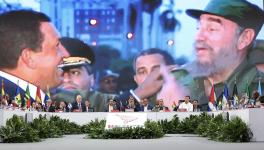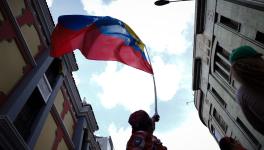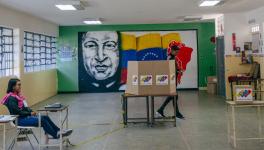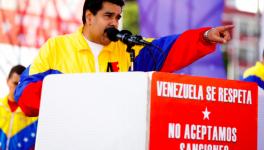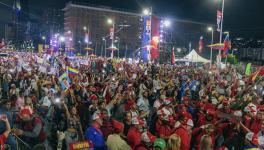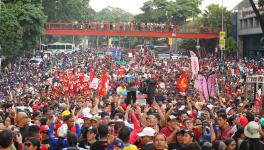More Than 3,000 Venezuelans Voluntarily Return to Their Homeland
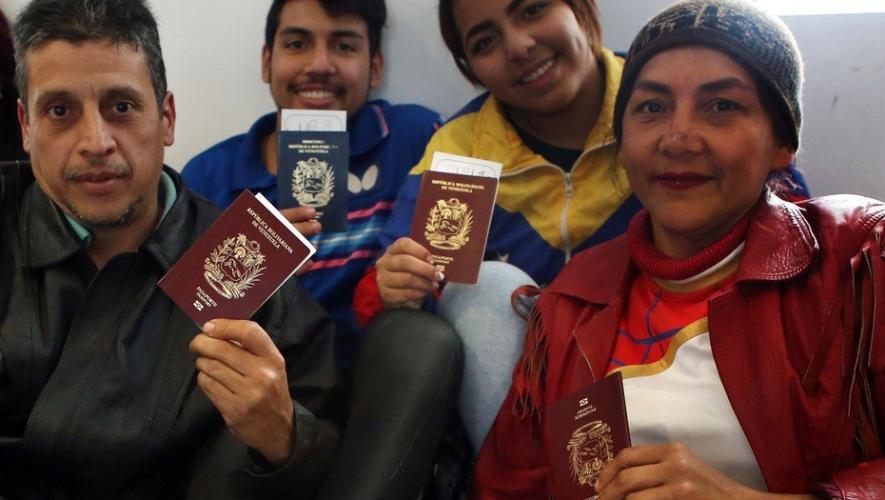
Venezuelan migrants returning to Venezuela from Peru. Photo Credit: Marcha Noticias
Over 3,000 Venezuelans have decided to return voluntarily to their country after the implementation of the Plan Vuelta a la Patria (Return to the Homeland Plan) promoted by President Nicolás Maduro. The plan was proposed in response to the complaints received in Venezuelan embassies abroad of xenophobia and social vulnerability suffered by migrants in different countries. On Wednesday, September 12, the first flight to Venezuela departed from Argentina with 86 Venezuelans on board.
Plan Vuelta a la Patria is an initiative recently initiated by the Venezuelan government that aims to guarantee the return of thousands of Venezuelans who migrated to other countries for different reasons but due to their struggles with adjustment, xenophobia and social vulnerability, decided to return to their country.
In addition to the first 86 Venezuelans who traveled back, over 1,000 people have expressed their desire to participate in the future stages of the plan.
The embassy of Venezuela in Argentina, through an official communiqué, explained that in its first stage, the Plan Vuelta a la Patria from Argentina was aimed at those people in the streets or with extremely serious problems. However, “due to the huge number of applications received, the call was expanded to all those facing economic complexities or those finding it impossible to grow in various spheres, and [who] wanted to return to Venezuela”.
Juan José Valero, the Chargé d’Affaires of the Embassy, in conversation with Marcha Noticias, said: “According to the instruction of our Commander Maduro, the plan is being extended to all the Venezuelans across the world who migrated under different circumstances and who are presently in a state of social vulnerability, danger and serious situations that threaten their human dignity, [because there is] possibility of them returning voluntarily”. He also said that “Venezuela is committed to making all political, logistic, diplomatic and economic arrangements to end this”.
In this regard, Valero said, “This initiative has been successfully carried out in Peru, Ecuador, Panama and today, on a pilot basis in Argentina. Last Wednesday, we made the first call to integrate them again into the activities of our country, and in less than two days, there were more than 100 compatriots who expressed this will”. He then added, “In turn, hundreds of others continued to register in the census requesting this possibility – a humanitarian help to all those citizens who are in a state of danger. We hope that in the coming days, this number will increase with the new flight”.
Over 3,000 Venezuelans have returned from Brazil, Colombia, Ecuador, Peru and recently from Argentina. Jorge Rodriguez, vice-president of communication, culture and tourism pointed out a few days ago from the Miraflores Palace [the official headquarters of the president of Venezuela] that there were thousands of Venezuelans who continued to request their return after migrating to various Latin American countries. Rodriguez said that thousands of other applications had been received and he denounced the violence and mistreatment of Venezuelans by those countries that in their speeches had proposed to “receive” the Venezuelans “expelled” by the so-called “humanitarian crisis” that was nothing more than a “scam that only seeks a military intervention in Venezuela.”
Describing the kind of media assault Venezuela was suffering from, Valero told Marcha Noticias “it is the hegemonic means of the Latin American ultra-right wing. They are focused on dismantling any plan that Venezuela carries out to dignify Venezuelans.” He pointed to the concerted campaign by the neoliberal right to establish that Venezuela was suffering from a massive exodus. As part of this, they were alleging migration numbers that were nowhere close to reality, he said.
With respect to the number of migrants in Argentina, he pointed out that from the numbers available with the embassy, it was not even “2% of the total number that the media talks about every day.” He added that the program dismantled the theory “that in Venezuela, people are trying to leave due to humanitarian issues. If this was true, we would not have, as we have now in Peru, more than 1,700 people returning, nor the current listing that we have in Argentina of the people who want to return”.
He added that in the context of the global economic crisis and the largest political-economical blockade that Venezuela had ever suffered, the thesis of the “humanitarian crisis” sought to conceal the political and economical responsibilities of those who had caused it. However, considering the social policies of countries with neoliberal governments like Brazil, Peru and Argentina, survival had become so difficult for the Venezuelan migrants that they had decided to return to their country, proving that such a ‘humanitarian crisis’ was nothing but blockade, destabilization and interference, Valero said.
Talking about the experiences of migrants, Valero said “The economies of these countries have suffocated them and have not allowed them to grow in a dignified way. Things have become so bad that they and their families are at risk. There are many health issues because people do not have the resources to take care of themselves.” He stressed that “they are returning to Venezuela where they will be given all the required medical attention and other social services free of cost through the various social missions that are aimed at protecting and dignifying every Venezuelan who is living in and outside the territory”.
The embassy of Venezuela this time knew what to anticipate and, “the flight that took off from the El Palomar airport was sent by the Bolivarian government exclusively for this social assistance, and also had a medical team to support those who were moving.” Meanwhile, a large number of registrations continued at the Venezuelan consulate in Buenos Aires where all attempts were being made to tend to those who wished to return to their land.
Original article in Spanish written by Camila Parodi of Marcha Noticias
Get the latest reports & analysis with people's perspective on Protests, movements & deep analytical videos, discussions of the current affairs in your Telegram app. Subscribe to NewsClick's Telegram channel & get Real-Time updates on stories, as they get published on our website.










